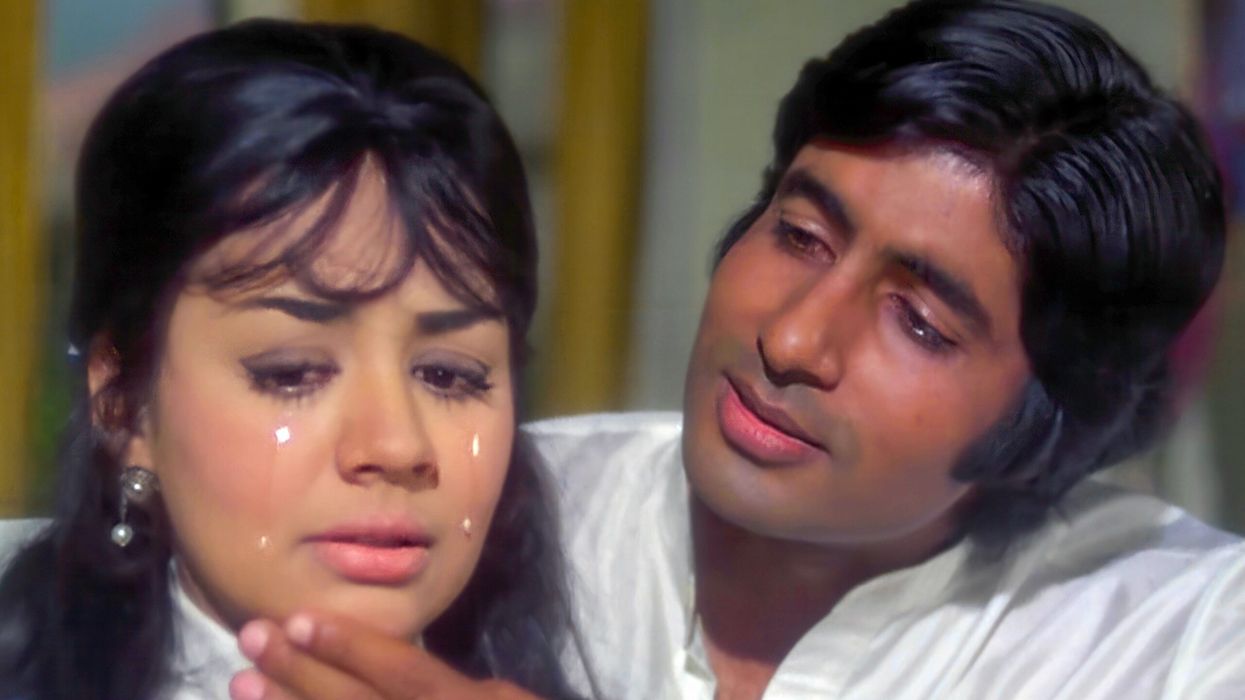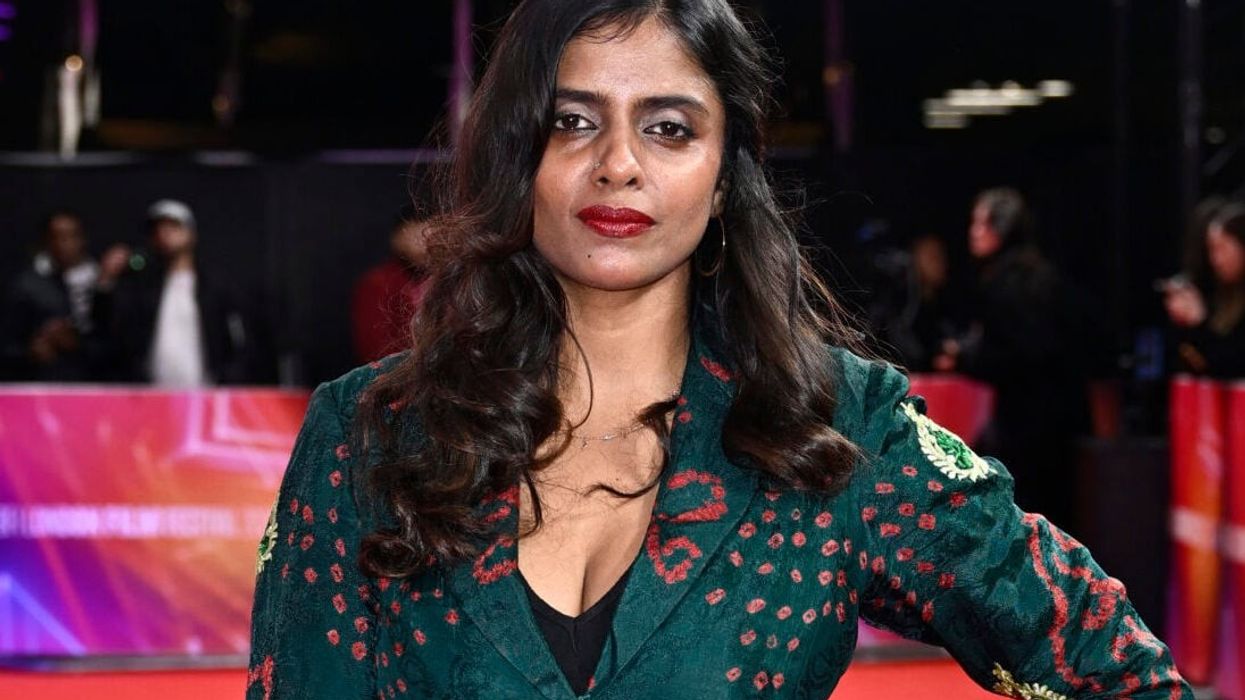NAUSHAD ALI helped to shape commercial Hindi cinema with superb songs in some of the greatest Indian movies ever made.
The legendary composer raised the bar for all those who followed in his giant footsteps, and left behind timeless musical classics that continue to entertain millions, many decades after they were created. He created new techniques, broke records and introduced singing talents, who went onto become legends. Born December 25, 1919, the music maestro passed away on May 5, 2006 aged 86.
Eastern Eye decided to remember the musical magician on his death anniversary by selecting 20 key soundtracks from his stunning career, listed in chronological order.
Prem Nagar (1940): After working as an assistant to legendary music director Khemchand Prakash, the gifted young musician got his first break as a solo composer with this film. He did research for the folk based songs in the village set drama and got himself noticed. That solid start commenced a journey that would change Indian music forever.
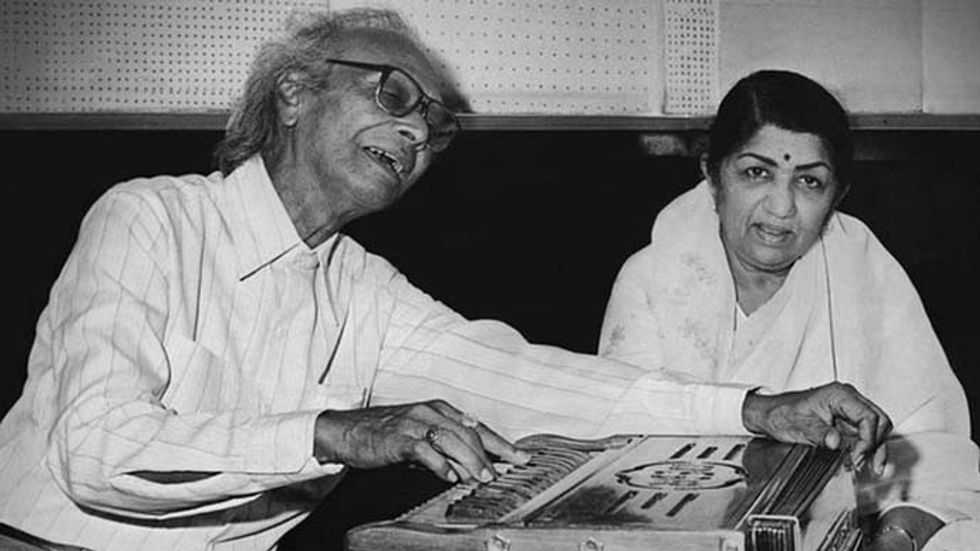
Rattan (1944): Subsequent soundtracks of Sharda (1942) and Sanjog (1943) showed that Naushad was a special talent. With Rattan, he demonstrated that his hit songs could turn a movie into a success, even if it didn’t have major stars headlining it. He got popular poet DN Madhok to deliver lyrics for tracks that featured top talents like legendary classical singer Zohrabai Ambalawali. It would become the highest grossing movie of that year, largely thanks to the music.
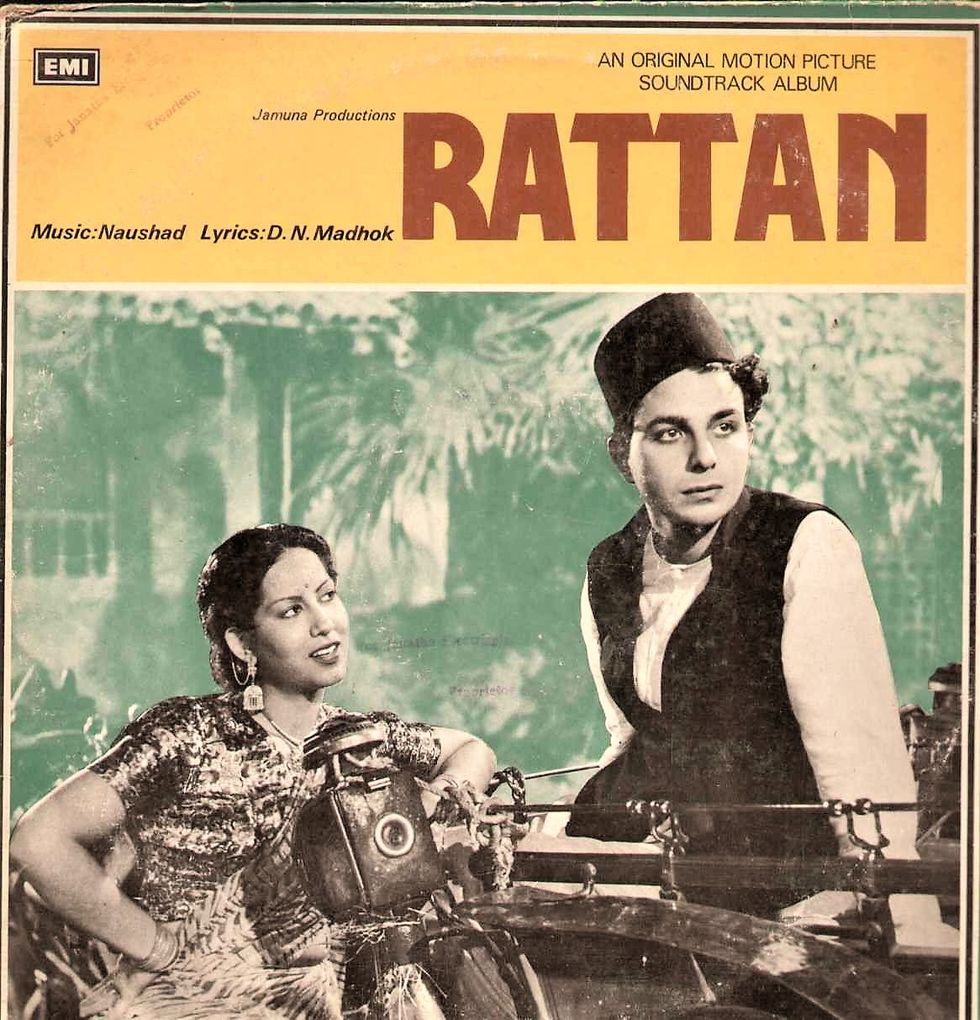
Anmol Ghadi (1946): The stunning collection of songs for this romantic drama turned Naushad into the number music director in Bollywood. The maestro delivered a mesmerising collection of songs that featured young singing talents like Noor Jehan, Suraiya and Shamshad Begum, who would go onto become future legends. Although the film had top tracks like Uran Khatole Pe Ud Jaoon and Aaja Meri Barbaad Mohabbat Ke Sahaare, it was Awaz De Kahan Hai that became iconic and turned the movie into that year’s biggest hit.
Dard (1947): The Bollywood musical became a surprise success, largely thanks to the songs. The soundtrack commenced a dream team partnership between Naushad and lyricist Shakeel Badayuni. Dard would help turn Suraiya into the number one leading lady and singer of the time. Singer Shamshad Begum also got noticed with the songs. Naushad discovery Uma Devi also shone as a singer and would later become famous as the comedian known as Tun Tun.
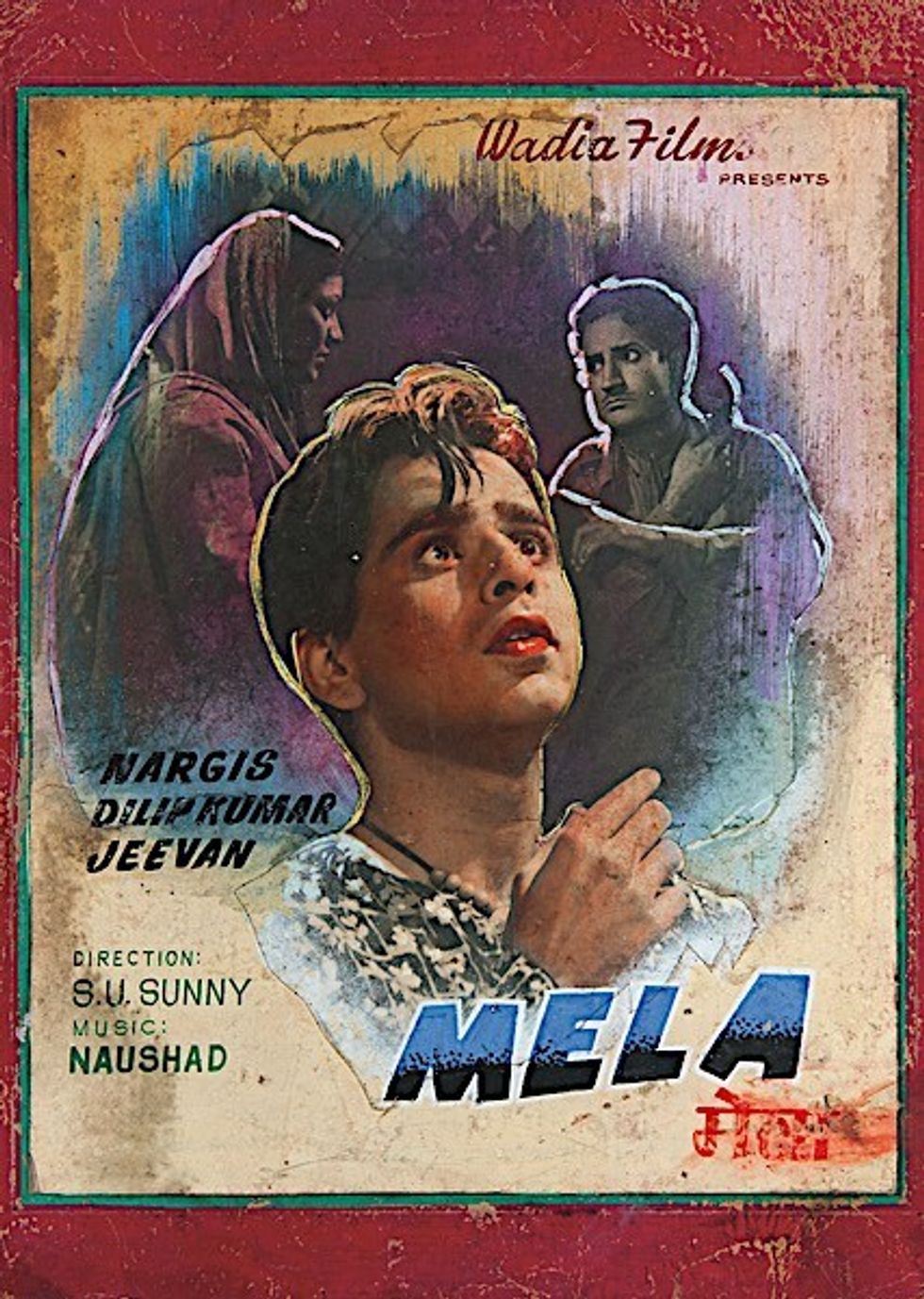
Mela (1948): The romantic tragedy starring Dilip Kumar and Nargis was so popular that it ran in cinemas for more than 50 weeks. Not surprisingly, Naushad’s songs played a major part in that success. He teamed up with lyricist Shakeel Badayuni on songs that enabled future legends to shine, including newcomer Mohammed Rafi’s rendition of Ye Zindagi Ke Mele. The unique voice of Shamshad Begum dominated the soundtrack with songs like Dharti Ka Aakash Pukaare and Mukesh got noticed for his stunning bidaai (farewell) song Gaye Ja Geet Milan Ke Tu Apni Lagan Ke.
Andaz (1949): Although Andaz is most remembered for the lead stars Dilip Kumar, Raj Kapoor and Nargis coming together onscreen for the only time, the legendary love triangle also had great songs. These top tunes with lyrics by Majrooh Sultanpuri added an energy to the movie, which enabled it to break box office records. Songs like Koi Mere Dil Mein, Toote Na Dil Toote Na and Tod Diya Dil Mera were filled with feelings that connected with audiences.
Babul (1950): Being the producer of this romantic drama starring Dilip Kumar and Nargis meant Naushad had added motivation to compose great songs for it. He followed up the brilliant bidai song in Mela with Chhod Babul Ka Ghar, which was even better. Both the male and female versions would become iconic. The musically rich songs about the joys and pains of love had top singing talents conveying a rainbow of relatable emotions. The terrific tunes turned Babul into the second highest grossing Bollywood film of that year.
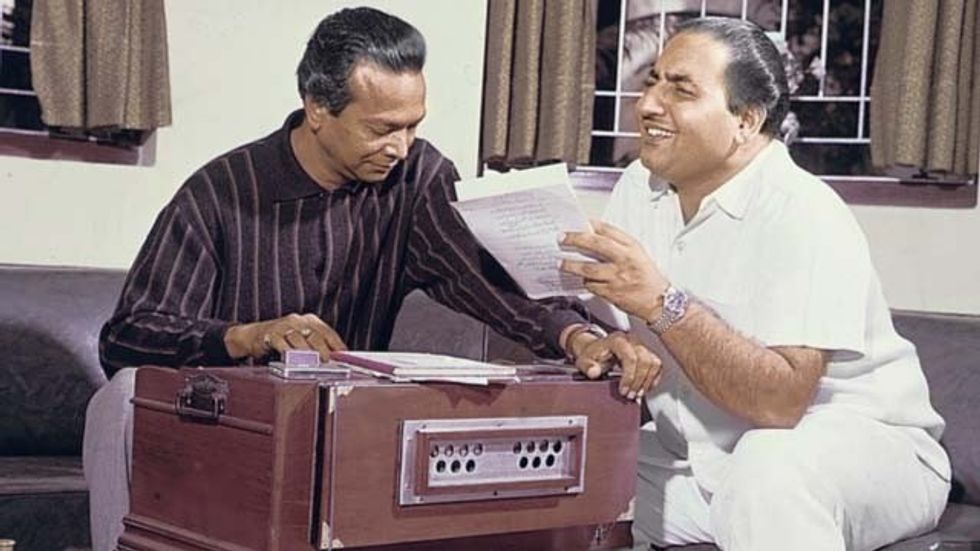
Deedar (1951): This tragedy starring Dilip Kumar and Nargis needed songs with emotional depth. The dream team of Naushad and lyricist Shakeel Badayuni delivered. Although Lata Mangeshkar showed off her impressive skill on songs like Tu Kaun Hai Mera Kehde Balam, it was Mohammed Rafi, who really shone with songs like Bachpan Ke Din Bhula Na Dena and the phenomenal classic Huye Hum Jinke Liye Barbad.
Aan (1952): The first technicolour blockbuster in Bollywood history had bright songs filled with different shades. The ace composer teamed up with lyricist Shakeel Badayuni on stunning songs that elevated the path-breaking film to a higher level. This included the unforgettable Mohammed Rafi rendered love song Maan Mera Ehsan, Arrey Nadaan. All the tracks collectively added to the spirit of the swashbuckling success.
Baiju Bawra (1952): One of the greatest soundtracks produced in the history of Indian cinema won Naushad the best music director trophy at the inaugural Filmfare awards. He introduced strong classical music elements into songs that became runaway successes and turned the movie into one of that decade’s biggest hits. While Lata Mangeshkar and Mohammed Rafi take centre-stage on superb songs like Tu Ganga Ki Mauj Mein Jamana Ka Dhara, there was also great compositions featuring the voice of classic music legend Ustad Amir Khan.
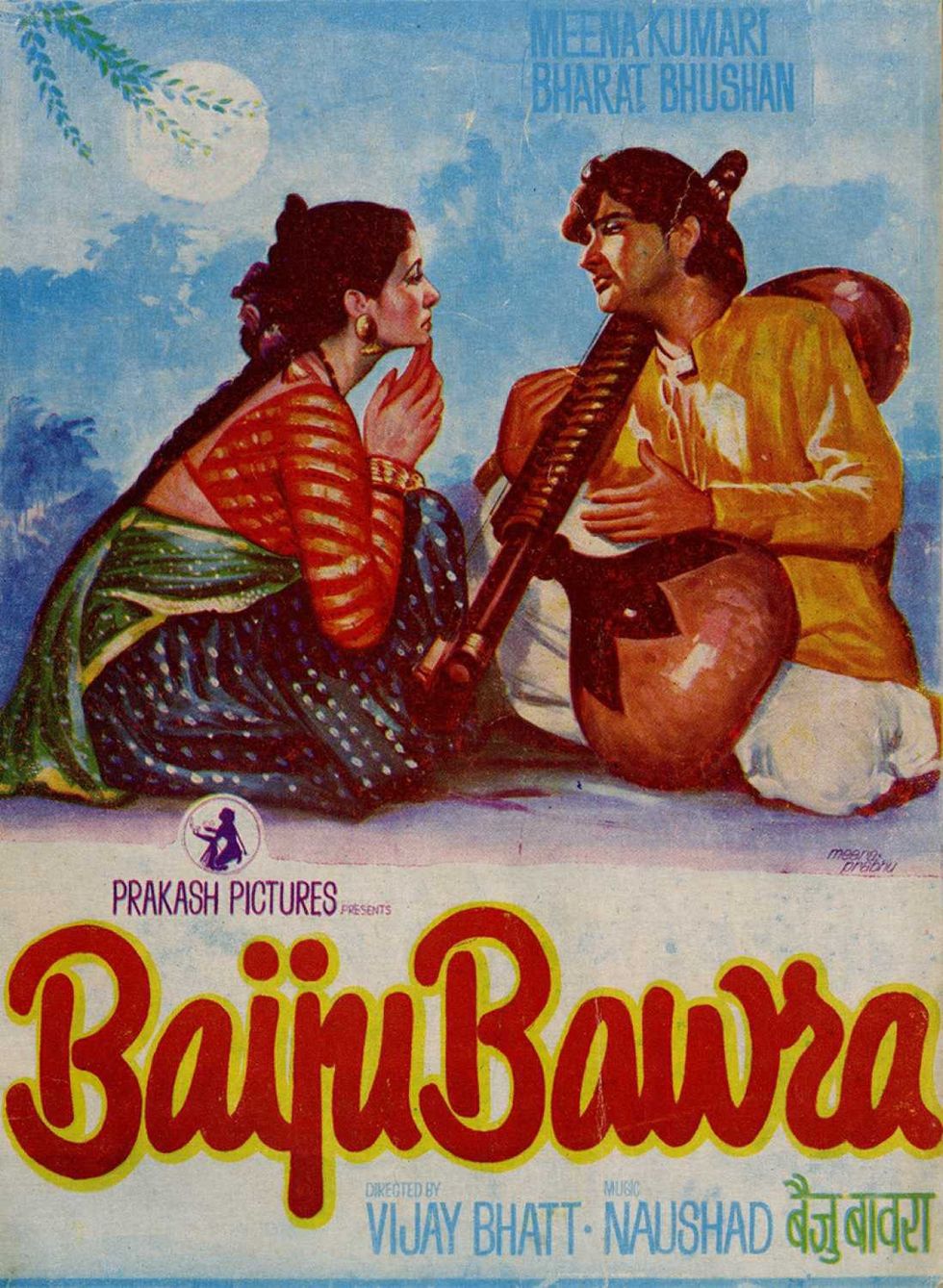
Diwana (1952): By the time this film came out, Suraiya had established herself as a top actress and singer. She was very much at the forefront with songs like Mora Nazuk Badan and Jeene Diya Na Chain Se, which showed off her impressive talent. What made the songs extra special was that they were picturised on the lead star.
Uran Khatola (1955): The composer was on fine form again for a massively successful film, which he also produced. A movie that had a different type of story worked at the box office because Naushad had created love songs that captivated the attention of audiences. The terrific tracks featured legendary singers Mohammed Rafi and Lata Mangeshkar at the top of their game.
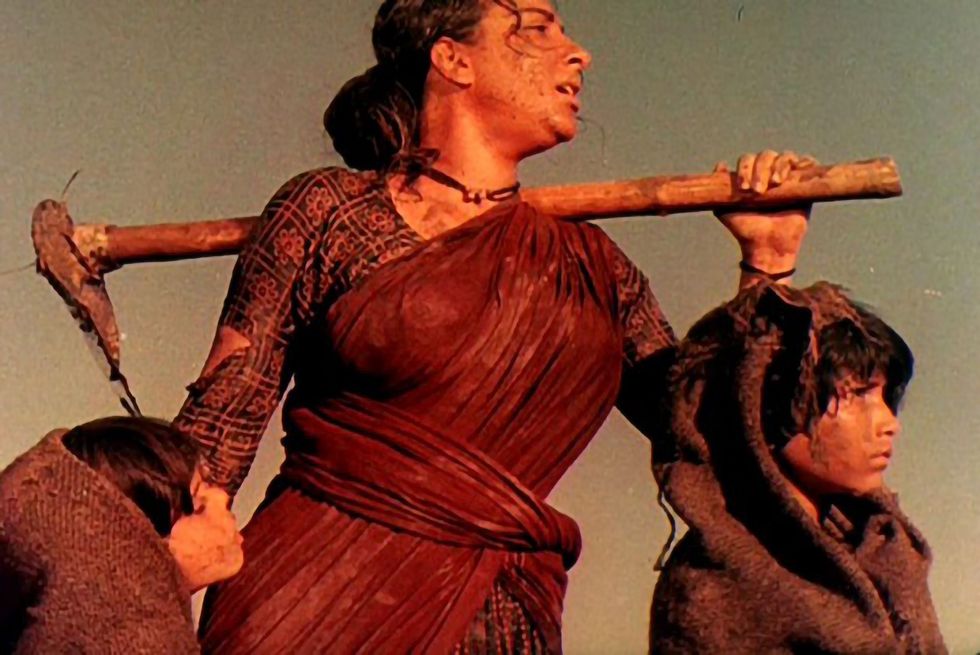
Mother India (1957): Songs for first Indian film to be nominated for an Oscar are usually unfairly forgotten, despite adding gravitas to the iconic drama. The great variety of songs ranged from the celebratory Holi Aayi Re Kanhai to the deeply emotional Dukh Bhare Din Beete Re. The standout song was perhaps Duniya Mein Hum Aaye Hain, which perfectly captures the pain of living in an unforgiving world and fighting through it.
Kohinoor (1960): Music should have been secondary in this sparkling action adventure, but that definitely wasn’t the case. The stirring songs featuring Lata Mangeshkar, Asha Bhosle and Mohammed Rafi had a great energy. Although there were commercial songs like Do Sitaron Ka Zameen Par Hai Milan Aaj Ki Raat, perhaps the standout moment was Madhuban Mein Radhika Nache Re, which had a classical base.
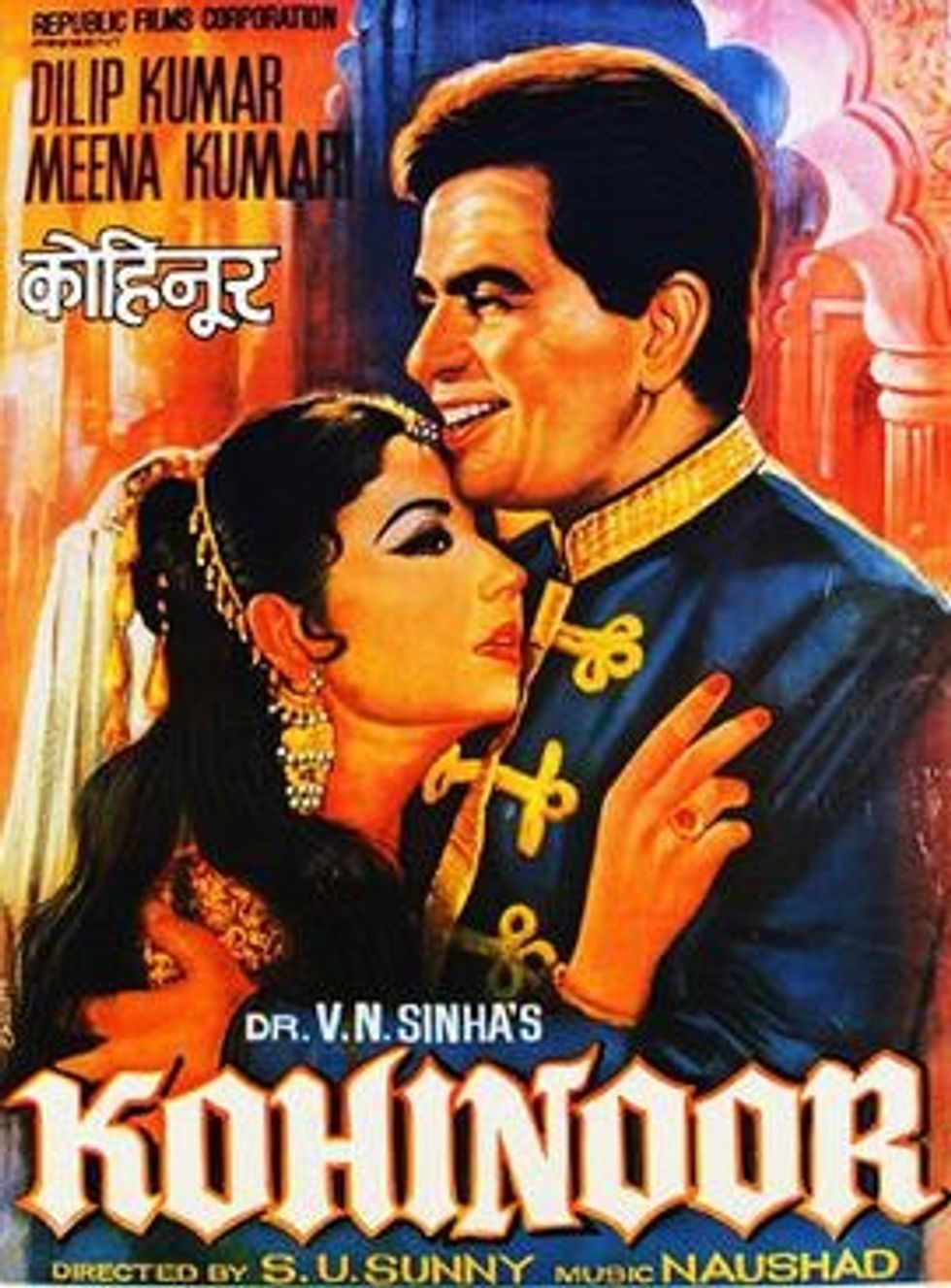
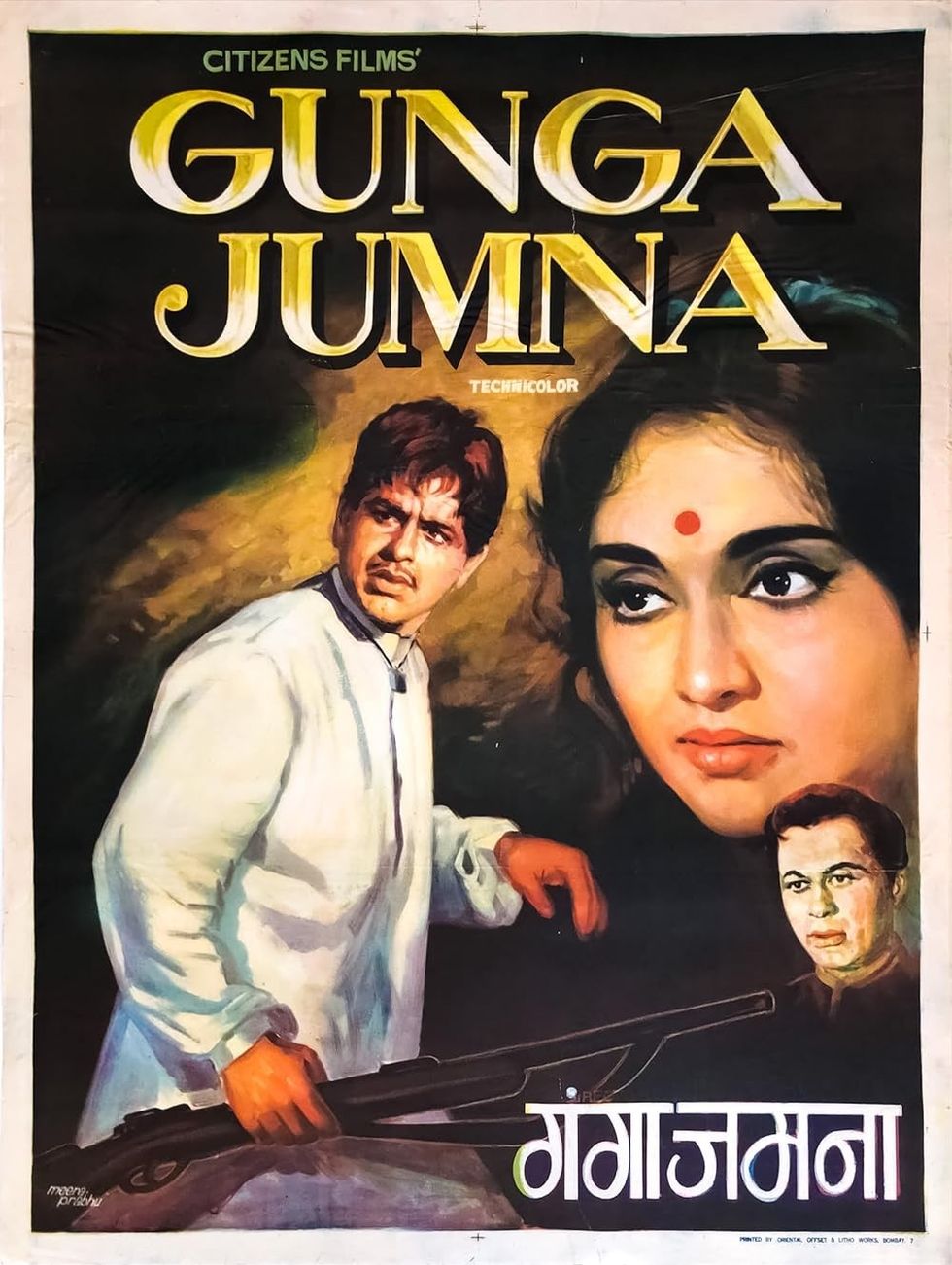
Gunga Jumna (1961): When Dilip Kumar turned producer with this crime drama, it was always going to be inevitable that he would get the same composer, who delivered songs for some of his biggest hits. Naushad and lyricist Badayuni created an impressive array of songs like the celebratory Nain Lad Jaihe To and the iconic Insaaf Ki Dagar Pe, which is widely regarded as one of the greatest Indian patriotic songs ever composed. It helped turn the film into the highest grosser of that year.
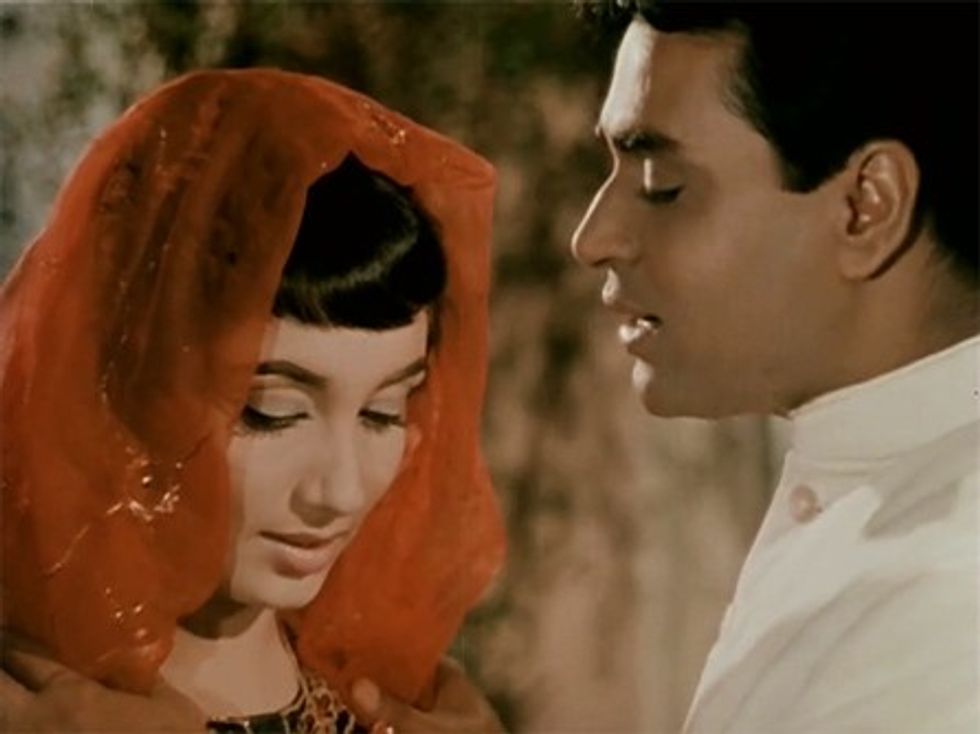
Mere Mehboob (1963): The highest grossing Bollywood film of 1963 had songs that were pure love. The deeply romantic drama is filled with wonderful songs that conveys the different emotions of being in love. Although the terrific title track rendered by Mohammed Rafi stood out, Mere Mehboob has many other magnificent musical moments created by Naushad. This included the delightful duet Mere Mehboob Mein Kya Nahin and a female version of the title song featuring Lata Mangeshkar.
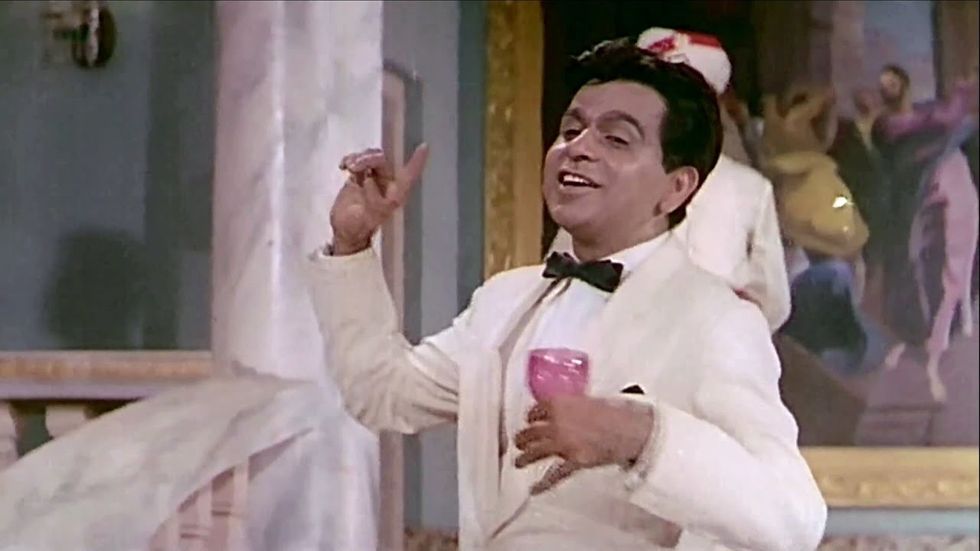
Leader (1964): This political drama surprisingly had top tracks that included legendary romantic number Tere Husn Ki Kya Tareef Karoon and iconic drinking song Mujhe Duniyawalon. Another of the film’s songs that earned itself a place in history was patriotic number Apni Azaadi Ko Hum, which would be covered many times in subsequent years. These songs perhaps unfairly overshadowed other top tunes like Aaj Hai Pyar Ka Faisla and Hameen Se Mohabbat.
Ram Aur Shyam (1967): The ace music director was mostly known for the classical based compositions, epic songs and deeply emotional numbers. But with this smash hit comedy, Naushad showed that he could deliver tracks with a fun element. He also delivered another of his signature love songs with Aaj Ki Raat Mere Dil Ki.
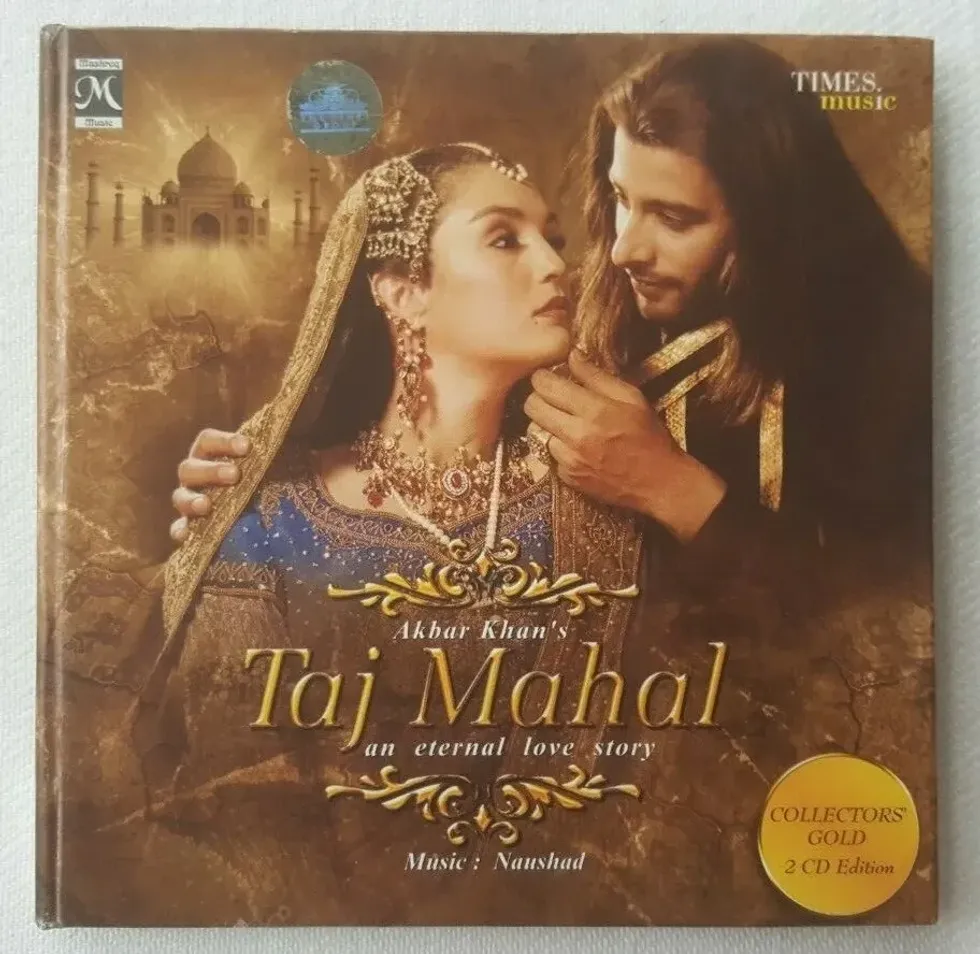
Taj Mahal: An Eternal Love Story (2005): Naushad being unwilling to deliver ‘fast food’ commercial numbers meant that the latter part of his career slowed down. Many times, his great compositions found themselves in films not worthy of them, including this last soundtrack credited to him. The film’s failure robbed audiences of a chance to experience the incredible music he delivered for it, including sumptuous songs and instrumental music. Right up until the end, Naushad showed that no one could deliver musical depth like him.






 Neetika Knight
www.easterneye.biz
Neetika Knight
www.easterneye.biz











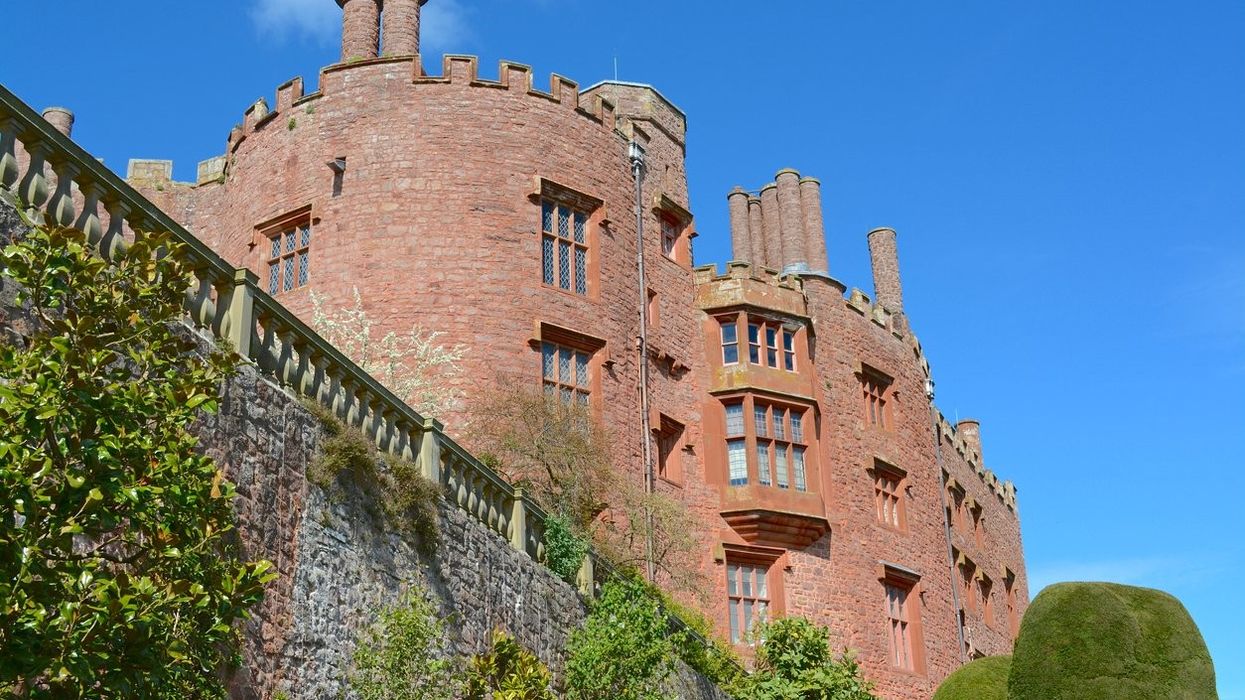
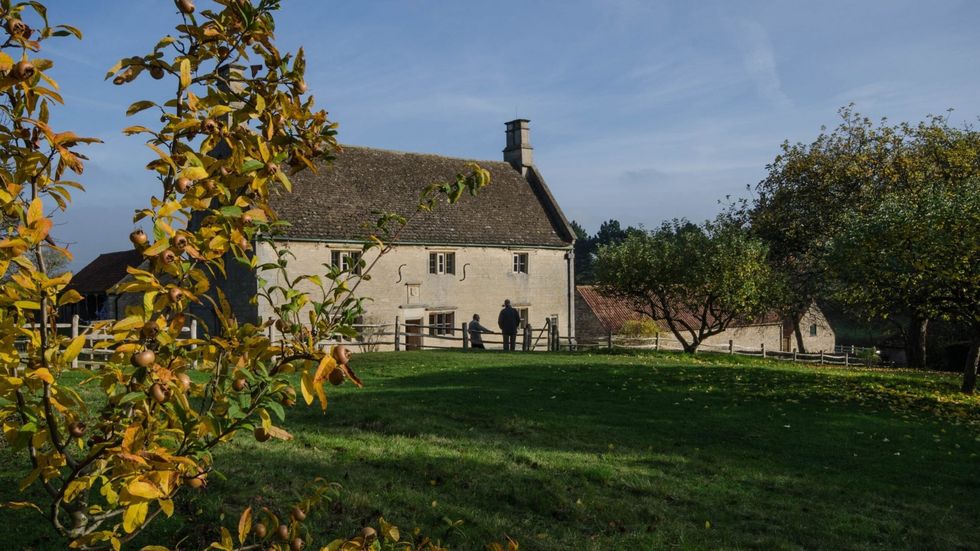 Isaac Newton’s birthplace, WoolsthorpeManor, Lincolnshire
Isaac Newton’s birthplace, WoolsthorpeManor, Lincolnshire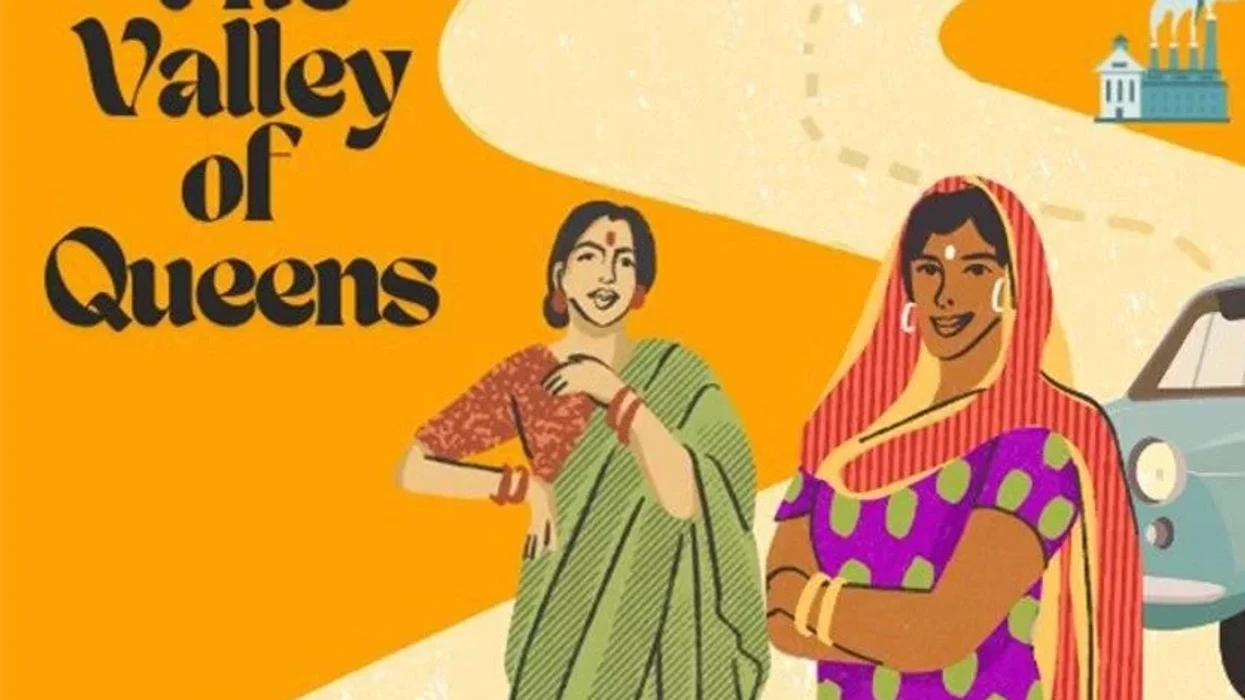
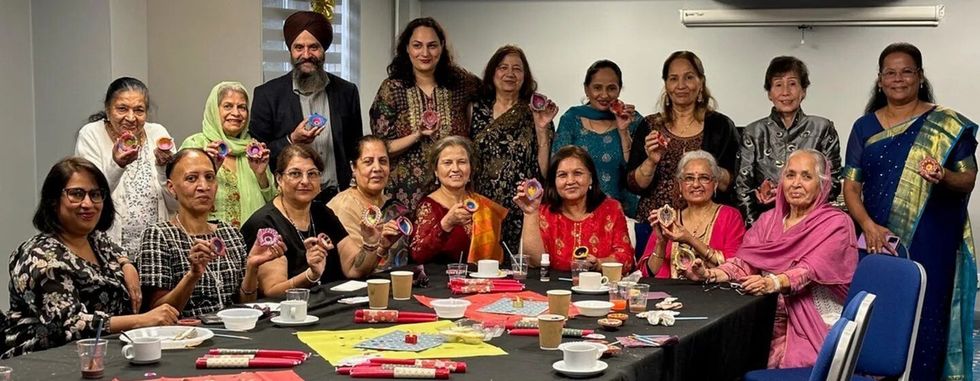 Women from the Happy Hour Project engaged in creative workshops
Women from the Happy Hour Project engaged in creative workshops